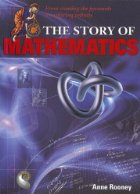(And here I am trying to finish up half-way thru February. Ah well. Nope. Finishing in March. The books were still good. Already found one or two for my 2013 list. )
In the number one position, by a long way, is a book so awesome that I think I may have caused a run on it in the local bookstores just by raving about it to all my reading friends:
 Popular Crime: Reflections on the Celebration of Violence
Popular Crime: Reflections on the Celebration of Violenceby Bill James
(2011)
This is an extremely idiosyncratic book by a very smart guy. Reading it feels like talking with a bright friend. He already revolutionized baseball scouting by analyzing scouting practices as an outsider, and he has applied the same sort of pure rationality to the intersection of crime and media. He is not a lawyer or journalist or prison reform advocate or politician or...or...or. He is a smart guy. He has no vested interest. He has no agenda. I am so sad that I have finished the book. I wish it could have lasted longer. I am so attracted to his thinking that I am almost prepared to take up reading his baseball thoughts, even tho baseball is possibly lowest on my list of interesting sports. Well, perhaps basketball is...or rugby, erm, cricket...but anyway, this is a book I believe anyone could enjoy - from ardent readers of fiction to ardent readers of the newspaper.
Here are the rest of the books, in no particular order, fiction first, then the two non-fiction entries on the list.
by Jay Kristoff
(2012)
Japanese Steampunk. With glossary. Bends the genre, and mashes it up. No more need be said.
by Andrey Kurkov
(1996, first in English 2001, this edition 2011)
Post-glasnost Ukrainian fiction, black comedy, featuring a penguin. Horrifyingly real and funny.
by Paolo Baciagalupi (best name ever!)
(2009)
A fantastic projection into the future - commerce controlled by food barons, borders locked down to slow the spread of plant epidemics engendered by mono-culturing of agriculture, a sexy Japanese cyborg struggling with her conscience, while the humans around her live blithely day-to-day. No, not blithely; they endure, but they don't challenge. This was a masterpiece of science fiction as far as I am concerned. It stayed with me so much that I realized I better give it my "favourites" tag on LibraryThing.
by Chip Kidd
(2008)
One of my literary heros, first he was a star of book cover design. This novel concerns Stanley Milgram's Obedience to Authority experiment at Yale, one of the (very) few things I truly learned in university, and a lesson that continues to resound in everyday life. It is also a book, if you are interested.

by Haruki Murakami
(2009, in English 2011)
Murakami was a real favourite of mine, but then I read that his English editors shortened his works by 33%, thus, I guess, inadvertently enhancing the magical realism of his novels. I finally got past the idea when this book was recommended by a kid I admire, and I read it. It was Murakami; it was awesome.
by Mark Forsyth
(2012)
From the title joke, to the last word, this book was a delight and a surprise even to a committed amateur etymologist such as myself. So thorough, so funny. Although there were some gaps that I could identify from knowing Italian, I didn't see any errors, and for that I give about 5 thumbs up! Forsyth has a wordy website, The Inky Fool, which is now on my radar, and will stay on my "Links to Writers" sidebar.
The History of Mathematics
by Anne Rooney
(2009)
A really concise and clear story that links up beautifully with the order in which our kids learn mathematics over the years. This book fills in the background against which they study the methods and application as taught in school. Shame it can't be fit into the curriculum.
Plus: Favourite non-reads: (only one item)
BBC's Horrible Histories
I know it was originally a book series, which is all very fine and good, but the TV show is absolutely perfect. So far, only 3 seasons are available in Canada, and on DVD (which I had to order, in Region 2 format, from Amazon UK), and yet no matter how many times I have seen each show, I am actually and literally disappointed when the show ends. I know it takes up valuable evening reading time, but I will continue to sacrifice reading for this show. Great great great comedians, great costumes and hair, great accents, great historical and modern body language, great production values, and even better original music! (Late breaking news: a new season of shows has appeared on BBC Kids in Canada. OMG!)
The Daughter of Time
by Josephine Tey
(1951)
And I had a late great entry for this list from the end of December, a book that I realized was right at the intersection of Popular Crime and Horrible Histories, one of the rare books I have re-read several times, and am now encouraging some of my reading buddies to pick up (or pick up again). Tey was a brilliant writer, this being one of the two pen-names of Elizabeth Mackintosh. This book, from 1951, is about a cop laid up in hospital with a bad injury and nothing to do, who ends doing historical research, with the help of a young American history student, into the crime of the notorious Richard III - the murder of his nephews in the Tower of London. Your take on history and media will never be the same after you read this. And re-read it. And then re-read it again when the situation demands a review. And that's not to even start with the writerly aspects of the work, and her other books...
(Bizarrely and wonderfully, the long-lost burial site of Richard III was discovered earlier this year–2013–and he was certainly a crook-back. The photo is so beautiful I am including it here as a bonus.
Biggest disappointments:
Perks of Being a Wallflower
by Stephen Chbosky (1999, this edition 2012)
I know everyone loved it. I know it's very kid's favourite new book-slash-movie. Ho hum. Vertically integrated corporate product. Engaging characters. Confused psychology.
Cold Cereal
by Adam Rex (2012)
I love Love LOVE Adam Rex, but Lemony Snickett could have written this book.
Battle Royale
by Koushun Takami
(2003, this English edition 2009)
Supposed to be the original Hunger Games. Vicious, violent, gratuitous. No thanks. Offensive AND boring! I should add a PS - I refer you again to Obedience to Authority, and ask you to consider the opinion of a friend of mine, that Battle Royale is about the extent to which totalitarianism can replace morality with obedience. And he grew up in a totalitarian state. I'm glad I tried it. I am glad I know about Milgram. I am glad my friend shares his opinions with me.
The marigold is wondering rather nervously if anyone still remembers her...?

















